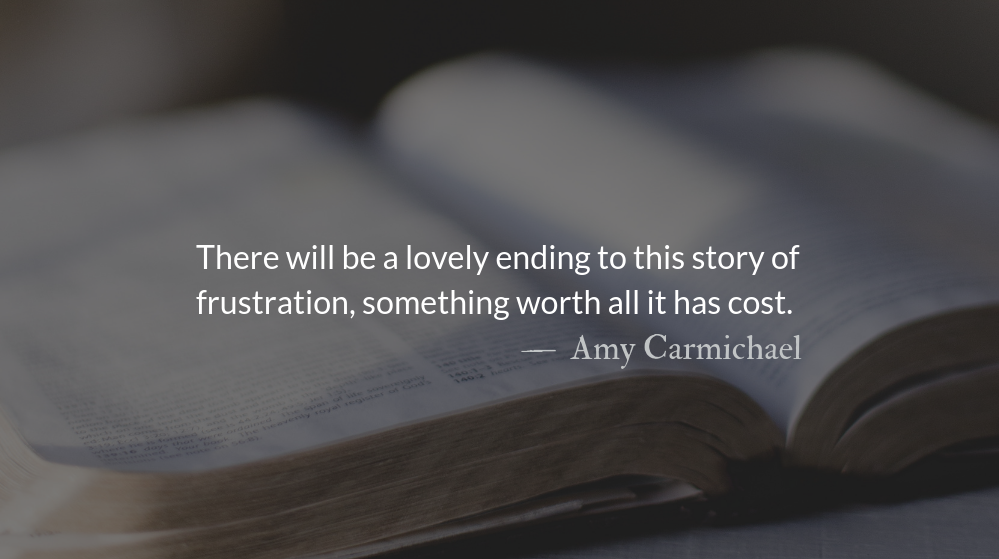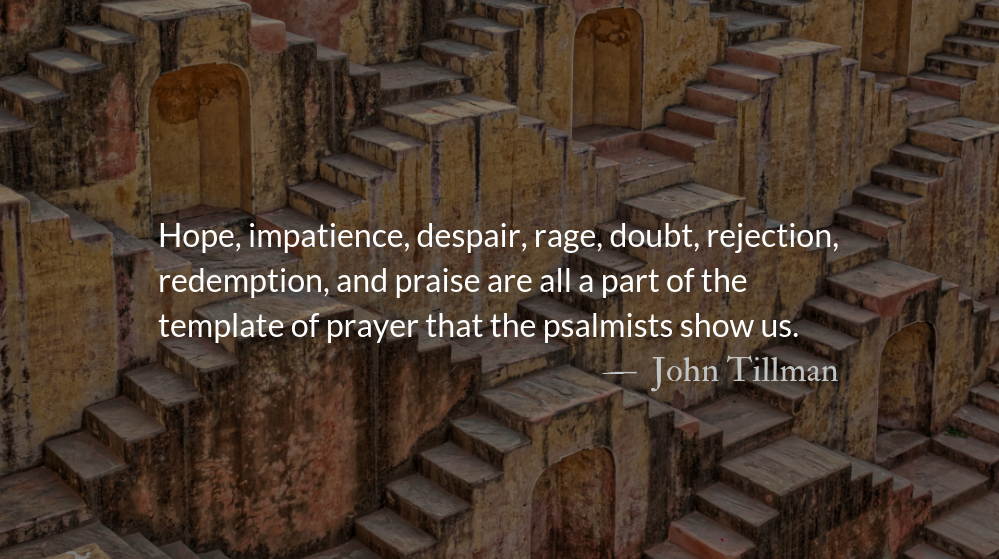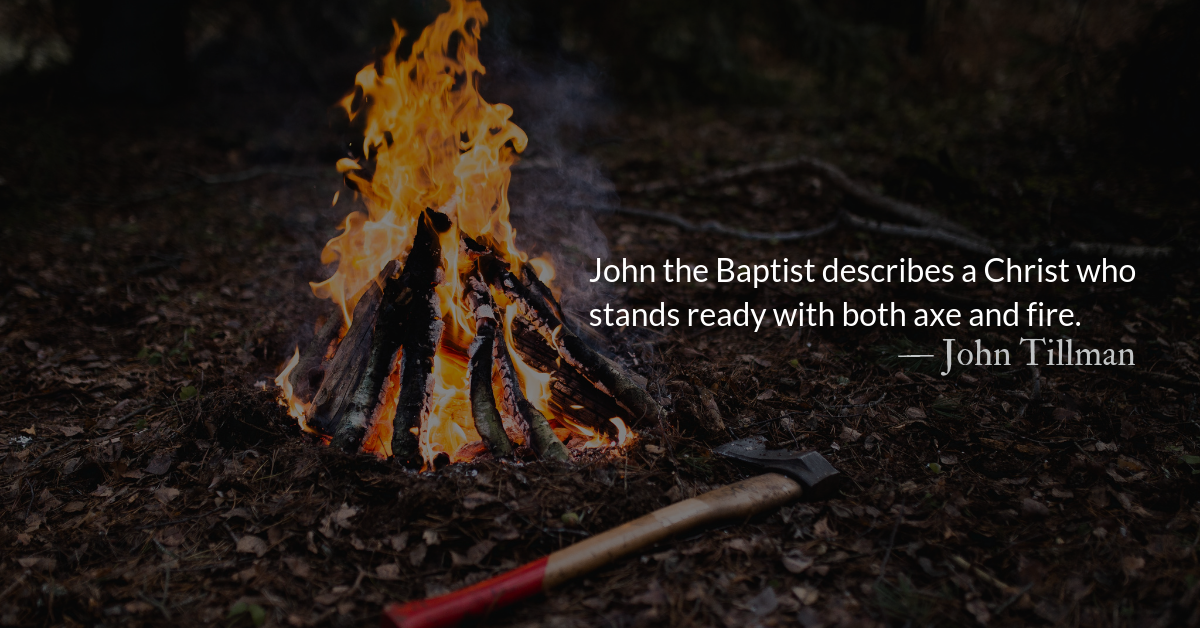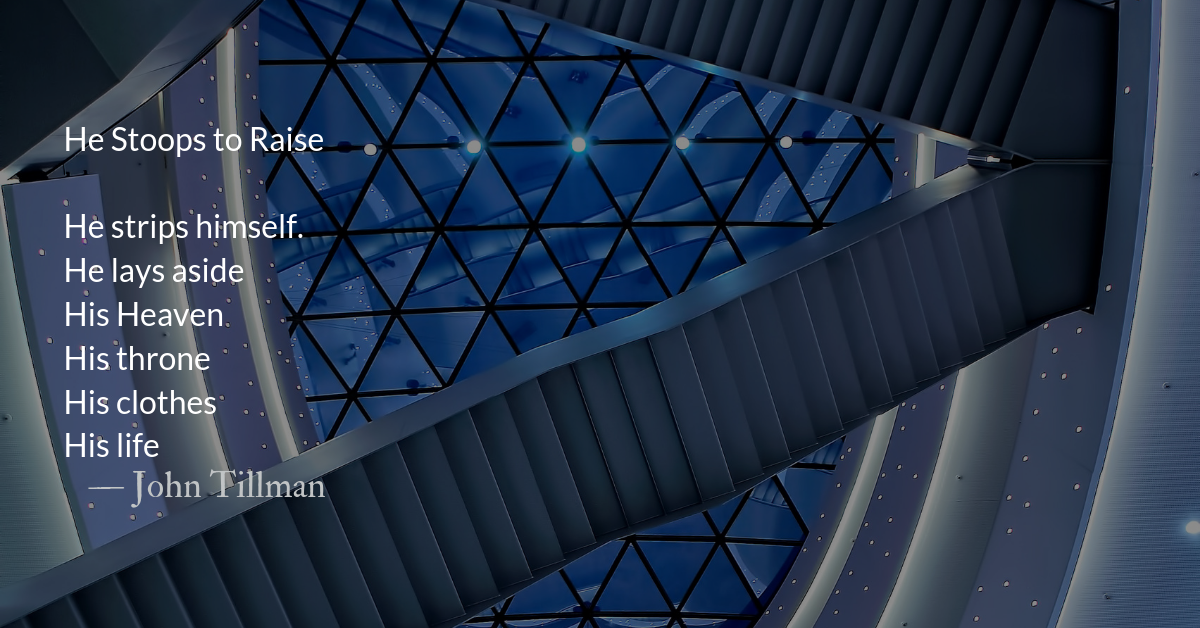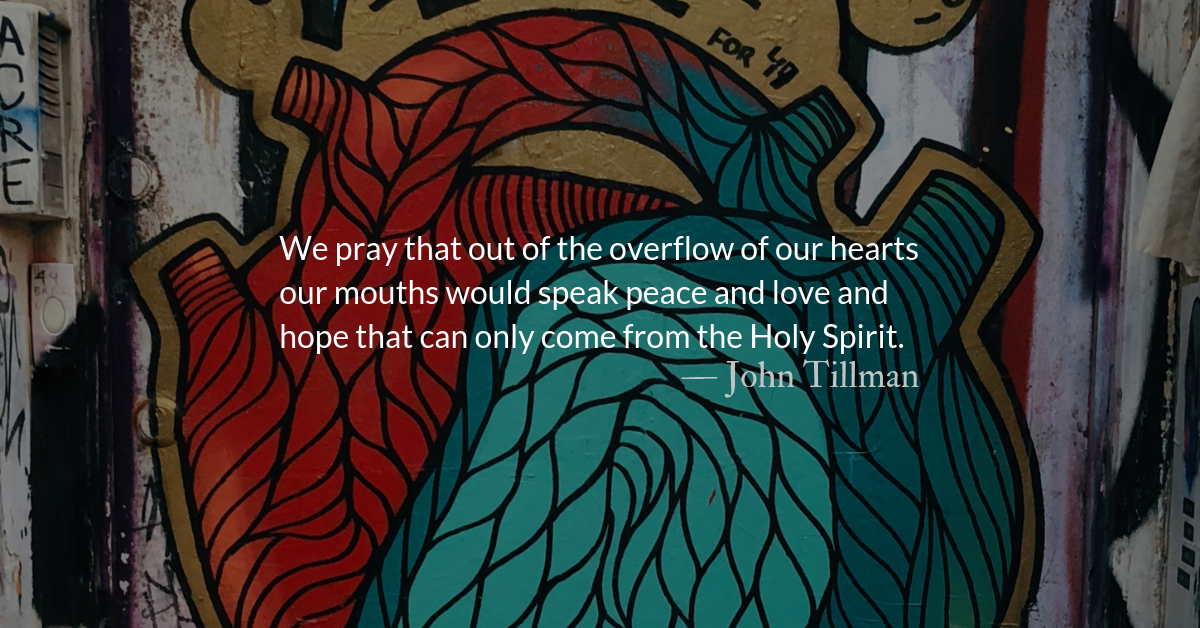Psalm 119.23-24
Though rulers sit together and slander me,
your servant will meditate on your decrees.
Your statutes are my delight;
they are my counselors.
Reflection: Occupation of Meditation
By John Tillman
In a letter to a frustrated friend, Amy Carmichael wrote:
“Did you notice the words ‘occupied in Thy statues’ in Psalm 119.23 (Prayer Book Version)? It is a beautiful word. I have nothing to do today but to please Thee.
That is true of you, for this weariness is part of life, bonds that are allowed to be. But I do hope for health and ask for it. He knows what He is doing. ‘Jesus himself knew what He would do.’ (John 6.5-6) There will be a lovely ending to this story of frustration, something worth all it has cost.”
The word Carmichael refers to as “occupied in” is translated “meditate on” in most modern translations. Siyach carries an additional meaning beyond pondering or thinking. It also implies telling, speaking, and producing thoughts and words. As Carmichael implies, meditation is more than just privately “thinking” about God’s word. It is occupation—something that implies action.
Prayer and meditation are real for Christians not only because our relationship with God is real, but because the results of true prayer are tangible actions on our part, empowered by God to make a difference in our world.
This is illustrated in the biblical story Carmichael references. In John, Jesus is asking Phillip how to feed a large crowd. Feeding the crowd is impossible for Phillip. It is even impossible for the united power of the disciples working together. But it is Christ’s will that they act in faith—doing what little they can do. Christ accepts our ineffectual actions when accompanied by effectual faith. He then miraculously works his power through us to change the world.
In the Psalm, the writer is being slandered and attacked by rulers, representatives of government and this world’s systems of power. The psalmist’s response of meditation is not one of plugging one’s ears with God’s Word so as to retreat from the world. It is that of filling one’s mind, and then one’s mouth with God’s Word—speaking that truth to the powers of the world.
Whatever our earthly frustrations, and whatever the tactics of the powerful princes and rulers who would slander or attack us, our source of strength is not human wisdom. Only meditation on and occupation with God’s Word can bring us peace in our frustrations, and give us power to oppose evil and help the suffering in this world.
Prayer: A Reading
Jesus taught us, saying: “Why do you call me, ‘Lord, Lord’ and not do what I say?… — Luke 6.46
– From The Divine Hours: Prayers for Summertime by Phyllis Tickle.
Today’s Readings
Deuteronomy 26 (Listen – 3:13)
Psalm 117-118 (Listen – 2:52)
This Weekend’s Readings
Deuteronomy 27-28:19 (Listen – 13:27), Psalm 119:1-24 (Listen – 15:14)
Deuteronomy 28:20-68 (Listen – 10:11), Psalm 119:25-48 (Listen – 15:14)
Thank You!
Thank you to our donors who support our readers by making it possible to continue The Park Forum devotionals. This year, The Park Forum audiences opened 200,000 free, and ad-free, devotional content. Follow this link to join our donors with a one-time or a monthly gift.
Read more about A Discipline for the Anxious
The psalmist writes of being “too troubled to speak,” yet he cries to God…in the midst of doubts and fears, he remembers God’s faithfulness in the past. He meditates on these memories in the heated moment of stress.
Read more about Meditation in Spiritual Rhythm :: Throwback Thursday
Meditation is not new age, but old. However, in the modern age, it has often been forgotten on the shelf as many Christians and Christian leaders followed our culture into frenetic clamor instead of leading our culture from a place of peace and rest.

